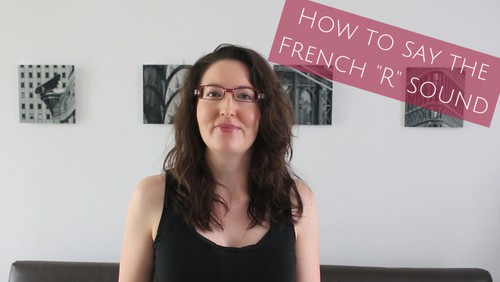When you start learning French, you’ll notice right away that the French use seemingly formal words to express casual sentiments. Are the French actually more formal? Not necessarily. Let me give you a few examples of what I mean in French and how it carries over into English.
When the French sound formal unintentionally
OK, so what am I talking about? I’m referring to French words and phrases, that when translated into English, sound kind of formal/overly stuffy/pretentious.
They are words that people commonly use in French that are just normal, but to our English-speaking ears, they sound like they’re trying to impress their high school English teacher. Or one-up someone with fancy vocabulary.
But the truth is, these formal-sounding words are not formal at all in French!
It’s when the French speaker literally translates the word from French to English and tries to use it the same way in English that the tone gets lost in translation.
The result can be overly formal or even come across as arrogant. In my experience, this happens the most when someone has a lower level of English and doesn’t know that a more natural or casual word choice exists to say the same thing.
Let me give you some examples of when French can sound overly formal:
The word “right”
The first example I have for you has to do with the word “right.” In French, the word is droit. It’s what you say when you want to talk about human rights, civil rights, when someone has the right to an attorney, the right to do something, a right turn, etc.
The first time it sounded strangely formal to me in French was when our then 4-year-old niece scolded her brother over a toy. “Tu n’as pas le droit de le faire comme ça,” she shrieked. (“You don’t have the right to do it like that!”)
“Oh wow, what a precocious kid!” I thought. Her language choice was so… formal sounding.
Do little English-speaking kids worry themselves over rights? Not usually.
But what I didn’t realize until Tom told me later was that little Louise wasn’t talking about “rights” at all.
Yes, tu n’as pas le droit literally means you don’t have the right (so in a legal context would translate literally), but young children on the playground say this all the time and it means you are not allowed. As in, you can’t do something.
I always hear kids on the playground policing other kids and telling them they aren’t allowed to do this or that. Normal kid stuff. It’s just in French, droit sounds so… adult.
It’s the equivalent of an English-speaking kid saying “HEY! You can’t do that!” Normal stuff.
When French seems overly formal (unintentionally)... here are my examples!Click To TweetAméliorer
Next, let’s take the verb améliorer. It’s very common in French to say something like je veux améliorer mon niveau d’anglais. Or anything. Your computer skills at work. Your level of fitness. Whatever. Améliorer a normal verb in French, just as normal as “improve” would be in English.
Now most English-speaking adults know the word ameliorate exists in English and means “to make better or improve,” but it’s not our top word choice to express that sentiment. We don’t use ameliorate in English as frequently as the French do in French. We’d just say we’d like to improve something or get better at something.
So when a French person says in French that they want to ameliorate their level of English in a casual conversation with friends, it’s perfectly understood and doesn’t sound formal. But if they were to say the same thing in English, it sounds a bit unnecessarily sophisticated.
You see how seemingly normal French word choices can come off in an unintended way in English?
Yes sir & ma’am
Another example of French sounding formal to an English-speaking ear is when people address others as madame or monsieur when we might think their first name or just an ambiguous hello (not hello, SIR) would suffice.
Saying “Hi, mister/sir” in French may seem a little over the top, but it’s better to be too polite than than to be perceived as a rude foreigner who doesn’t know the rules.
In the U.S., if you say a cheery “hi sir” to a shopkeeper, he might think you’re trolling him and trying to be a smartass. But in France, totally normal. Sir and ma’am the heck out of everyone until they tell you to call them by their first name (this may never happen).
It’s a sign of respect and shows you know the cultural norms (like saying bonjour). If a French person sirs or ma’ams you in France (even if you’re on the younger side), they aren’t being weird. It’s normal in France. Calling someone you don’t know by their first name is rude (or, at the very least, unusual, depending on the context).
Quick French lesson: 3 Tips to sound more natural >>
Impeccable
You’ll hear this in response to “how are you” and I love it. Sure beats ça va or très bien. The French say they’re impeccable, or impec for short.
Yes, you can tell someone in English that you’re impeccable today but you might get a few strange looks — unless you’re an eccentric type who is into flowery speech.
In France, there’s nothing strange or out of the ordinary about feeling impec. C’est normal!
Primordial
Let’s take this phrase: La météo joue un rôle primordial en montagne. The weather forecast plays a vital role in the mountains. Yes, primordial exists in English but I think we’d just say something is essential or the most important.
Primordial isn’t an everyday word in American English and would sound kind of weird in casual speech. In French, primordial isn’t fancy or weird. It’s just a word to mean vital or essential.
***
Can you think of other examples where the French sound formal?
Tell me a word (or direct translation) that sounds overly formal or strange to our English-speaking ears.
PIN ME:










This goes both ways. My husband has said that I sound very high-falutin’ when I choose the French version of a very routine English word–because the French word isn’t the common one and tends to be used only in formal or academic settings.
I find that sentence structure is very formal in French. I want to say something directly, but the French use a more roundabout, elaborate structure.
Hi Catherine, do you have an example or two you could share about how your word choice in French sounds overly formal? I know it works both ways but I can’t think of anything
This is a great topic, and I love dissecting the cultural differences between languages! I might be mistaken, as my French is rusty these days, but saying ‘Je valide’ as in ‘I agree’ always stuck out to me. I have seen this used a lot throughout social media, in comments especially. ‘Valider’ is validate, right? So it’s essentially saying, ‘I validate’. Although, that’s kind of what I love most about French as a language. 🙂
So glad you enjoyed the post, Jess! I’m going to let Tom weigh in about the formality of validate. Or if another native speaker is reading, feel free to give your thoughts on that 🙂
Saying “je vous en pris” for you’re welcome seems so very polite and formal to me.
I still think so as well. Even je t’en prie isn’t natural for me. I just say de rien and call it a day.
Very interesting ! (French reader, here)
Your example with “améliorer” reminds me of something my German teacher explained years ago. I think there’s a similar situation between German and French. In German class, I’ve learned that words with a Latin origin are often a complicated/less casual synonym for a word of germanic origin (which is often very close to the English one). So when I speak German, I tend to use a word that sounds close to the French one, with a Latin root – and people may think I have a very rich vocabulary, when it is in fact the opposite… I just don’t know the correct casual word. (Example : applaudieren/klatschen -> applaudir, applaud/clap in English)
In English, I’ve seen many other examples in the medical field : I don’t know what “chickenpox” is, but I immediatly understand “varicella” (in French : varicelle), which is a more specialized word in English if I understand correctly. The Latin origin is associated with a higher level of education/specialty (“la langue savante”, sorry I don’t know how to say that in English), but in French these are very normal words.
(I hope I’m explaining it in a way that makes sense…)
I like how similarities between languages sometimes only create confusion ! There’s a hidden trap in every little detail 🙂
And yes, we say “Bonjour Madame, bonjour Monsieur” to everyone. You explained that perfectly, Diane. One time (I was a teenager, I didn’t understand these rules yet) I said only “Bonjour !” to a friend’s father and my friend was mad at me for being rude to her family. I was mortified !
@Jess : Yes, “Je valide” is often used for “Je confirme.”/”Je suis d’accord”/”J’approuve”. I don’t think it’s formal at all !
Je valide. 😉
Yeah, I agree with Laure on that topic and use “je valide” as a way of saying so. It is quite common. It may have started as a bit tongue-in-cheeky kind of way to confirm something (being overly formal for humourous reason) but it’s so common now that I don’t think many people would see it as formal.
I have also noticed that we might use more words from Latin origin that exists in English but sound fancy to English speakers but not to us because we are more familiar with it.
About “bonjour madame/monsieur” though, I guess I’m the exception because I never use it with anyone. I find it weird, especially now that I start being of the same age or older than the person I interact with, I can’t bring myself to say monsieur/madame. It just sound weird to me, like I’m a 5 year old or something.
So I just say bonjour and I never had anyone take offense at that.
But hey maybe I’m just a rude French guy
Hey PL, I’ve noticed that older folks seem to say “bonjour madame/monsieur” more often than someone in their 30s or younger. Like when I see senior citizens in the park, they often greet each other with a formal “Bonjour monsieur” and never “Bonjour Jean-Paul”. Maybe it’s a generational thing too?
Tom (who will hopefully leave his own comment) says he doesn’t say the monsieur/madame part too often either and he’s not a rude guy at all, so you probably aren’t either!
Personally speaking, I can’t bring myself to say bonjour monsieur/madame in most cases. I just feel like I’m mocking the person. And I HATE when receptionists at doctors’ offices say bonjour madame or bonjour Madame Last Name to me. Just bonjour Diane is fine!
But Tom explained that professionals addressing clients would never call them by their first names. It’s still so strange to me. When I go to the dentist in the US, the hygienist comes to the waiting room and says Diane, my first name. Here, I always think someone is trying to be a smart ass by referring to me as MADAME. We’re cool, really, just call me Diane!! Hard to explain but hopefully you understand what I mean!
Yes I do think it’s mostly a generational thing.
Older people tend to be more formal that’s definitely true.
My 93 grand-mother would never address anyone she doesn’t know with anything else than “Bonjour madame/monsieur” or even “Bonjour madame/monsieur Martin” if she know the person’s name but are not acquainted personally.
While my mother would be a bit more casual and probably be OK with saying only “Bonjour” and I would definitely only say “Bonjour” or maybe even “Salut” depending on the situation.
But I agree with Tom and this is where the cultural difference still lingers : I would definitely NOT be fine with being called by my first name by someone I don’t know and I would not call them by their first name either.
In your dentist example it would be a clear case where I would expect “Monsieur Dupont”.
Fist name basis is for friends or at least people you have a personal relationship with. Here we don’t know each other and my ‘official’ identity is “Monsieur Dupont” so that’s that.
In the end it is just down to what feels right or wrong and the why is quite hard to explain because it’s purely cultural.
I do completely understand what you mean and see why you feel that way but it’d still feel strange to me.
You feel like someone is mocking you by being overly polite, I’d feel like someone is being way too familiar when they didn’t “earn” it.
In the end I just want to share an expression that you might not know and that is very à propos here : “On a pas élevé les cochons ensemble!” I think you can easily get the literal sense but the meaning is usually “Hey! We don’t know each other so back off!”
Hi Laure, really appreciate your thorough comment. I love that French readers find a foreigner’s point of view interesting, so just wanted to kick off this comment with a thanks.
What you’re saying about words with Latin origin makes total sense. It can come off as formal in English because we say chickenpox in casual speech although I think a fair share of people would know what varicella is, or maybe I’ve been in France too long and know it because it’s varicelle.
Anyway, thank you again. I love discussing these “hidden traps.” Bon week-end !
Correct use of the subjunctive in English always sounds so literary.
It tends to be so in French too! Especially the use of “imparfait du subjonctif”, which is probably no longer taught in school!
What a shame! (just kidding)…
like we say in colloquial French: “tout fout le camp, ma brave dame”
could this be translated by “everything goes amuck, my good woman”?
Laure, what you wrote is perfectly right, and it reminds me of what I learnt when I was younger, in the sixties. This difference is historical: as every French pupil knows (I do not know about the English and USA curricula) England was conquered in 1066 by William the Conqueror, who was a Norman duke, whose grandfather had settled in France a century ago, and like all the Normand aristocrats, had learnt French. So the new aristocrats in England spoke French after 1066 , thus the pig that the Saxon peasant rose became a “porc” when it was served to the table of his lord, and hence many of the English words of Latin origin are the ones used by the upper class members. Of course Latin and Greek were taught in the universities which only the children of the upper classes frequent, so these words sound affected to the common English speaking people!
My favorite is “c’est logic”. Often used when an American might say “makes sense”
Exactly, and if an American said “That’s logical” in response to something casual, we might get a few strange looks. But I feel like if we have an accent, we get a pass. (like if Tom said it). Maybe we can start a new trend, mixing in “that’s logical” with “makes sense.” Change it up a bit! 😉
Like a commenter above, I notice this often for medical terms. Chicken pox, shingles, ear infection, heart attack (I’ve noticed infarctus and crise cardiaque are both used commonly in French, where in US English only doctors seem to use infarctus), strep (streptococque – this one would be easier to figure out for English speakers, but I doubt many of us have ever used the full word!), etc. all sound so much more formal if you translate them literally from French.
Yup, completely agree! I can’t say I’ve used the full words in English (not even sure I know them!).
I am going to start using “impeccable” when people ask me how I am. It’s my new fav.
It’s a great word! Completely understood in English but just a bit unusual. Nothing wrong w/that!
I love this post! I love the French language so much; it fascinates me! I am going to start to use impeccable, too. Not exactly the same subject but after countless years learning French, I can still struggle with tu & vous. In some situations, it’s obvious which one is appropriate but not always!
Hello Diane,
Just a little typo “je veux améliorier mon niveau d’anglais” : it’s améliorer not améliorier.
Thanks, Kevin! It’s been updated. Sometimes you can read something 10 times and not catch your own errors. Appreciate it!
I find so many French expressions sound terribly formal, and agree with you for je vous en prie – I can never say it and always stick to de rien too! However with children, as mine have grown up in France/French, it never occurred to me that the whole tu n’as pas le droit might sound formal. It just sounds normal to me! Thank god we don’t talk like written French though – whenever I get notification that my kid has skipped a class or was late etc, the mail/letter starts with j’ai l’honneur de vous informer….!!! (That my kid’s been naughty!!!) And don’t get me started on how to sign off a business/formal letter with all the distinguished salutations! Fun post Diane, thanks for linking to #AllAboutFrance
Those linguistic differences are fascinating, aren’t they? As a long-time French expat, I find it very hard to stick to the ‘Monsieur/Madame’ thing, I’d much rather call people by their first name right away. Luckily though, things seem to move in that direction in France. Another thing I find utterly weird is how often the French will write their surname first, and their first name second, if that makes sense, for instance on online forms, school papers, including on their Facebook profile!
#AllAboutFrance